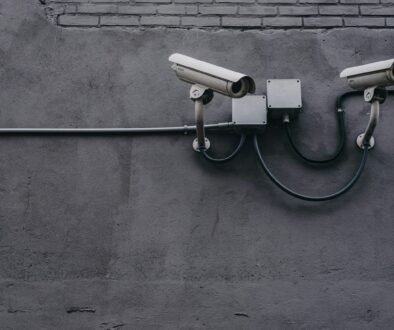Artificial Intelligence in Space Exploration
The pervasive influence of Artificial Intelligence (AI) extends across diverse sectors, and the field of space exploration is no exception. Recent years have witnessed AI’s pivotal role in aiding scientists and engineers involved in various space missions. This article delves into the profound impact of AI in space exploration, encompassing aspects from mission planning to data analysis and how it is revolutionizing our approach to traversing the cosmos. Lets explore Artificial Intelligence in Space Exploration.
Mission Planning and Navigation
Optimizing Trajectories with AI

Space exploration grapples with the intricate task of planning the most optimal courses for spacecraft. AI-powered algorithms, such as genetic algorithms and reinforcement learning, have emerged as remarkably effective tools in optimizing these trajectories. These algorithms factor in a myriad of variables, including gravitational influences, celestial entities, and fuel consumption, to chart the most resource-efficient path for a mission. Consequently, missions can save both time and valuable resources.
AI-driven optimization has become the linchpin of successful space missions. By calculating the most resource-efficient pathways through the cosmos, AI ensures not only the triumph of these missions but also their cost-effectiveness. This allows space agencies to allocate resources with greater precision, thereby expanding our reach into the boundless expanse of the universe.
Read about AI in Healthcare: The Power of Artificial Intelligence in Healthcare
Autonomous Navigation
AI-fueled autonomous navigation systems empower spacecraft to make real-time decisions devoid of human intervention. These systems rely on computer vision and machine learning to detect obstacles, scrutinize terrain, and adapt their trajectories accordingly. They prove especially invaluable during planetary descents, where instantaneous decisions can be the demarcation between mission success and failure.
The introduction of autonomous navigation marks a transformative leap in space exploration. It enables missions to respond to unforeseen challenges, such as unforeseen impediments on the surfaces of celestial bodies. Without AI, a plethora of these missions would confront insurmountable risks.
Space Traffic Management
With the proliferation of satellites and spacecraft in Earth’s orbit, managing celestial traffic takes on greater urgency. AI is a cornerstone in predicting prospective collisions, ensuring safe distances between entities, and optimizing satellite communication. It plays an imperative role in maintaining order and security in Earth’s increasingly congested orbital domain.
Effective management of celestial traffic is imperative not only for safeguarding invaluable satellites and the International Space Station but also for averting collisions that could result in perilous space debris. AI’s predictive and management capabilities underscore its indispensible role in preserving the security of assets in orbit.
Robotics in Space
Robotic Rovers and Drones
AI-driven robotic rovers, akin to the Mars rovers, and unmanned aircraft have extended the frontiers of space exploration. These machines are equipped with AI systems that empower them to traverse challenging terrain, amass samples, and transmit vital data. They are instrumental in conducting experiments and investigating remote celestial bodies where human presence is yet unattainable.
Robotic rovers and unmanned aircraft are the trailblazers of space exploration. They can venture into realms inaccessible to humans, navigating treacherous landscapes and amassing invaluable data. AI constitutes the driving force behind their autonomy, enabling them to make sagacious decisions and adapt to evolving circumstances.
Read about Miso Robotics: Miso Robotics: Innovations in Automation and Robotics Solutions
Repair and Maintenance
In the austere environment of space, equipment deteriorates over time. AI-powered robots are under development to undertake reparations and maintenance on spacecraft and space stations. They can autonomously identify issues and undertake rectifications, mitigating the necessity for perilous spacewalks.
The capacity to conduct reparations in space signifies a momentous stride toward sustainable, protracted missions. AI-driven maintenance robots stand as the primary respondents to technical issues, ensuring that essential equipment remains operational, freeing astronauts to focus on their scientific objectives.

Data Analysis and Interpretation
Big Data in Space Exploration
Space missions generate extensive volumes of data, encompassing imagery, spectroscopic data, telemetry, and sensor readings. AI’s proficiency in processing and interpreting vast data is pivotal in elucidating this information. Machine learning algorithms can detect patterns, anomalies, and correlations that might elude human analysts.
The vastness of space is paralleled solely by the monumental amounts of data it produces. AI constitutes the linchpin for unlocking the hidden enigmas within this data. Be it the discernment of potential indicators of life on distant celestial bodies or comprehension of the conduct of black holes, AI brings lucidity to the cosmos.
Exoplanet Discovery
The pursuit of habitable exoplanets has intensified in recent times. AI algorithms are harnessed to process data from telescopes and identify exoplanets potentially conducive to sustaining life. These algorithms scrutinize light curves and ancillary data to detect minuscule deviations that could signify the presence of exoplanets.
The quest for exoplanets underscores human curiosity. AI expedites this quest by sifting through voluminous datasets and flagging prospective candidates for subsequent scrutiny. The revelation of an Earth-like world is a stride closer to resolving the query, “Are we solitary in the cosmos?”
Space Weather Prediction
Space weather, including solar flares and geomagnetic disruptions, can imperil both spacecraft and astronauts. AI models are employed to foretell patterns in space weather, furnishing mission planners the capacity to adjust timetables and safeguard vulnerable equipment.
The capacity to anticipate space weather is imperative for astronaut safety and mission integrity. AI’s predictive abilities provide mission planners with the insights required for pivotal decisions, guaranteeing the secure progression of missions.
Human-Machine Collaboration
Assisting Astronauts
AI’s reach transcends merely robotic systems. It also occupies an indispensable role in supporting astronauts during space missions. AI-driven virtual assistants furnish astronauts with real-time insights, facilitate experiments, and even offer emotional support during protracted missions. These systems are conceived to enhance astronaut productivity and well-being.
The isolation of space and the taxing demands of missions present distinct challenges to astronauts. AI’s capacity to provide insights and emotional support assuages the psychological and emotional stresses of space exploration. It enriches astronaut well-being, ultimately contributing to the triumph of missions.
Language Translation
Collaboration in international space exploration often entails astronauts hailing from diverse nations. AI-driven language translation tools render communication between astronauts and ground control frictionless, dismantling language barriers and guaranteeing the precision of vital information transmission.
Effective communication stands as the bedrock of a successful space mission. AI’s role in dismantling language barriers ensures that instructions are comprehended and executed with precision, eradicating potential misapprehensions that could imperil missions.
AI Ethics in Space Exploration

The ever-expanding role of AI in space exploration brings ethical considerations to the forefront. Queries regarding data privacy, the distribution of decision-making authority, and the potential for autonomous AI systems to function independently in space are subjects under consideration by space agencies and international organizations.
The infusion of AI into space exploration unfurls intricate ethical conundrums. Who bears responsibility when an AI system takes a pivotal decision during a mission? How do we secure the confidentiality of data collected by AI in space? These questions underscore the necessity for deliberate ethical frameworks in the utilization of AI in space.
The Future of AI in Space Exploration
The future of AI in space exploration holds promise and challenges in equal measure. As technology continues to progress, we anticipate even more extensive integration of AI in space missions. AI will occupy a pivotal role in forthcoming endeavors, including lunar expeditions, Martian exploration, and potentially venturing beyond our solar system.
Space agencies and researchers are actively pioneering AI technologies capable of withstanding the rigors of space. These technologies will persist in pushing the boundaries of what is feasible in space exploration. As AI advances, we can look forward to missions that are not only more ambitious but also safer and more scientifically gratifying.
AI in Lunar Exploration
With the renewed interest in lunar exploration, AI stands poised to occupy a substantial role. AI-driven rovers and unmanned aircraft will facilitate lunar surface exploration, prospecting for resources and conducting experiments. Furthermore, AI will contribute to the construction of sustainable lunar habitats, ensuring the safety and well-being of future lunar inhabitants.
AI in Martian Exploration
The realization of sending humans to Mars is materializing, thanks in large part to AI. Autonomous navigation systems will guide spacecraft to the Martian surface, and AI-driven robotics will conduct experiments and establish habitats. AI will also assist astronauts in adapting to the challenges of living on the Red Planet.
AI in Interstellar Exploration
The aspiration to venture beyond our solar system is an ambitious one. AI is anticipated to take a leading role in this endeavor. It will be instrumental in managing exceedingly protracted missions, navigating the vast expanses between stars, and even scanning for signs of extraterrestrial life.
AI and Space Telescopes
AI has wrought a transformation in the field of astronomy, particularly in the operation of celestial telescopes. AI algorithms are applied to analyze prodigious quantities of astronomical data, aiding astronomers in discovering novel celestial phenomena and gaining insights into the origins of the cosmos.

In Conclusion to Artificial Intelligence in Space Exploration
In summary, Artificial Intelligence has become an indispensable asset in the arena of space exploration. From optimizing mission trajectories to processing colossal volumes of data, aiding astronauts, and even supervising celestial traffic, AI is metamorphosing the manner in which we probe the cosmos. The synergy between human inventiveness and AI capabilities opens fresh vistas in space exploration, pushing the boundaries of what we can accomplish in our pursuit to comprehend the universe.
As we cast our gaze upon the stars and venture further into the unknown, AI shall serve as our guiding beacon, enabling us to explore, discover, and broaden our comprehension of the cosmos. The era of AI-driven space exploration has barely initiated, and the possibilities are as boundless as the universe itself.
Additional Links
- 7 Amazing Applications of AI in Space Exploration
- 7 Incredible Ways AI Is Being Used in Space Exploration
FAQs for Artificial Intelligence in Space Exploration
- What is the role of AI in space exploration? AI plays a multifaceted role in space exploration, from optimizing mission trajectories to analyzing vast data, aiding astronauts, and even managing celestial traffic. It revolutionizes the way we explore the cosmos.
- How does AI optimize mission trajectories for space exploration? AI uses algorithms such as genetic algorithms and reinforcement learning to calculate the most efficient paths for spacecraft, taking into account factors like gravitational forces, celestial bodies, and fuel consumption.
- What are the benefits of AI-driven autonomous navigation in space missions? AI-powered autonomous navigation enables spacecraft to make real-time decisions without human intervention, enhancing adaptability and minimizing risks during planetary landings.
- Why is space traffic management important, and how does AI contribute to it? The increasing number of satellites and spacecraft in orbit makes space traffic management crucial. AI predicts potential collisions, ensures safe distances between objects, and optimizes satellite communication, safeguarding assets in orbit.
- How do AI-driven robotic rovers and drones contribute to space exploration? AI-equipped robotic rovers and drones can explore challenging terrains, collect data, and conduct experiments in places where human presence is not feasible, expanding the scope of space exploration.
- What role does AI play in maintaining and repairing equipment in space? AI-powered robots are being developed to autonomously identify and resolve technical issues on spacecraft and space stations, reducing the need for risky spacewalks.
- How does AI aid in data analysis for space exploration? AI processes and interprets the vast amount of data generated by space missions, identifying patterns, anomalies, and correlations that may be overlooked by human analysts.
- What is the significance of AI in the discovery of exoplanets? AI algorithms analyze data from telescopes to detect exoplanets that may support life, helping astronomers sift through vast datasets and flag potential candidates for further study.
- How does AI contribute to space weather prediction, and why is it important? AI models predict space weather patterns, including solar flares and geomagnetic storms, allowing mission planners to adjust schedules and protect sensitive equipment, ensuring the safety of astronauts and mission integrity.
- What ethical considerations are associated with the use of AI in space exploration? The integration of AI in space exploration raises ethical questions about data privacy, decision-making authority, and the autonomy of AI systems. These issues are being addressed by space agencies and international organizations.
- What does the future hold for AI in space exploration? The future of AI in space exploration is promising, with an increasing role in lunar and Martian exploration, interstellar missions, and the operation of space telescopes. AI will continue to push the boundaries of what is achievable in space exploration.
- How does AI assist astronauts during space missions? AI-powered virtual assistants provide astronauts with real-time information, support in experiments, and even emotional assistance during long-duration missions, enhancing their well-being and productivity.
- What role does AI play in breaking down language barriers in international space cooperation? AI-driven language translation tools facilitate communication between astronauts from different countries and ground control, ensuring that critical information is accurately conveyed, eliminating potential misunderstandings.
- What are the potential risks and challenges associated with the use of AI in space exploration?While AI offers numerous benefits, it also brings potential risks and ethical challenges, including decision-making authority, data privacy, and the operation of autonomous AI systems in space. These issues require careful consideration.
- What are some of the upcoming missions where AI is expected to play a significant role in space exploration? AI is anticipated to play a pivotal role in upcoming missions, including lunar exploration, Martian expeditions, and interstellar exploration, pushing the boundaries of what is achievable in space exploration.

MCQs
Question 1: What is one of the primary challenges in space exploration that AI helps address? A) Identifying alien life B) Planning optimal spacecraft trajectories C) Managing space traffic D) Repairing equipment in space
Answer 1: B) Planning optimal spacecraft trajectories
Question 2: How do AI-driven autonomous navigation systems benefit space missions? A) They analyze planetary atmospheres B) They improve satellite communication C) They enable spacecraft to make real-time decisions D) They provide real-time weather updates
Answer 2: C) They enable spacecraft to make real-time decisions
Question 3: Why is space traffic management important? A) To prevent asteroid collisions B) To ensure orderly celestial events C) To manage spacecraft parking D) To safeguard assets in orbit
Answer 3: D) To safeguard assets in orbit
Question 4: What role do AI-driven robotic rovers and drones play in space exploration? A) They assist astronauts in their daily tasks B) They repair damaged spacecraft C) They provide emotional support to astronauts D) They explore challenging terrains and collect data
Answer 4: D) They explore challenging terrains and collect data
Question 5: How does AI contribute to data analysis in space exploration? A) It identifies patterns and correlations in large datasets B) It assists astronauts with their tasks C) It conducts experiments on distant planets D) It predicts space weather patterns
Answer 5: A) It identifies patterns and correlations in large datasets
Question 6: What is the aim of using AI algorithms in the discovery of exoplanets? A) To locate extraterrestrial life B) To analyze the behavior of black holes C) To process data from telescopes and identify potential candidates D) To forecast space weather patterns
Answer 6: C) To process data from telescopes and identify potential candidates
Question 7: Why is ethical consideration important in the use of AI in space exploration? A) To ensure AI systems make decisions independently B) To address concerns about the behavior of celestial bodies C) To protect the privacy of data collected in space D) To eliminate language barriers between astronauts
Answer 7: C) To protect the privacy of data collected in space
Question 8: What is the future of AI in space exploration expected to hold? A) Reduced reliance on AI in future missions B) Integration into lunar, Martian, and interstellar exploration C) Limited applications of AI in space telescopes D) A decline in the use of AI in space missions
Answer 8: B) Integration into lunar, Martian, and interstellar exploration
Question 9: In what aspect of space exploration does AI provide linguistic assistance? A) Predicting space weather B) Planning optimal spacecraft trajectories C) Breaking down language barriers in international cooperation D) Identifying patterns in big data
Answer 9: C) Breaking down language barriers in international cooperation
Question 10: What are some of the potential risks and challenges associated with the use of AI in space exploration? A) Reduced efficiency of space missions B) Data privacy concerns, decision-making authority, and autonomous AI systems C) Incompatibility with space technology D) Improved communication between astronauts
Answer 10: B) Data privacy concerns, decision-making authority, and autonomous AI systems



